The fishing and guiding community in South Florida banded together earlier this year to help put a stop to three proposed tarpon-fishing tournaments that would have operated under the auspices of the Sport Fishing Championship (SFC) series. According to guides and captains, the proposed tarpon series just isn’t the right fit for South Florida — and it may never be welcomed to the area.
Southern Florida may be in the midst of the perfect ecological storm, one that’s taking a big bite out of its tarpon population. The cumulative effects of the ongoing climate crisis are doing significant damage to the fishery that made Florida famous and increases in fishing pressure and boater presence in the Florida backcountry have only added to the challenges facing the state’s renowned tarpon.
When it comes to the health of tarpon in South Florida, anglers may be their own worst enemy. Even though, across much of its range, tarpon are a catch-and-release resource (some are harvested in South American waters), the mortality rate for mishandled fish is significant. Add in everything else, from sharks attacking fight-weary tarpon and habitat degradation to larger and more frequent blooms of red tide, and it’s easy to see why the angling community in South Florida and in the Florida Keys is worried — and why it rallied together to stop the media-driven fishing tournament from taking place in South Florida waters.
Florida’s tarpon fishery, even with significant restoration efforts underway, isn’t getting much better. The state’s tarpon population has declined significantly in recent years, either due to mortality directly or indirectly involving humans, or because, as the climate changes, the fish are finding friendlier waters in other places, like inshore habitat along the Atlantic coast as far north as Virginia.
The Tournament
The SFC is a popular, made-for-TV circuit of fishing tournaments—mostly billfish and blue water events—that airs regularly and draws competitors and spectators from all over the Gulf Coast, Southeast, and mid-Atlantic regions. Its tournaments have become quite popular, and it has a large following of anglers who stay tuned in to the series, largely on the CBS Sports Network and on the series’ website.
Events range from Martha’s Vineyard and New Jersey to the Dominican Republic and Puerto Rico. The series takes place in what it calls “championship towns,”, from South Padre Island, Texas, to Biloxi, Miss., to Miami Beach. But, to date, the SFC does not produce tarpon tournaments.
The proposal
The idea for the tarpon series, according to SFC Commissioner and CEO Mark Neifeld, was to showcase three communities in South Florida and to highlight the tarpon fishery in the region.
“We look at each tournament as a way to showcase the resource and connect communities and people to that resource,” Neifeld said. “Our track record speaks for itself. It’s all about the fish, the communities and conservation.”
But, it would seem, SFC’s promotional footprint is just too big for the angling, guiding and conservation communities of South Florida. The events were initially scheduled for May 2023 in Islamorada, Sarasota and Charlotte Harbor — three legit “tarpon towns” where the fish and the fishing can be legendary. But an upwelling of local opposition sent Neifeld and SFC packing.
It’s important to note that there are still tarpon tournaments in South Florida and in the Keys. But, according to a couple of boat captains who head up local guide associations, the SFC series, with its media-driven approach to fishing events, represented a “bridge too far.”

The opposition
“I think there were a few issues that kind of put up red flags for us,” said Capt. Ted Wilson, the commodore of the Florida Keys Fishing Guides Association, an organization that opposed the SFC format for Florida. According to Wilson, there was a general feeling among guides in the region that the event was planned without enough local input and without regard to the health of the fishery. “First, the tarpon fishery is struggling. It’s getting harder and harder to catch tarpon because there are fewer of them,” he said. And, he noted, “nobody likes to have anything forced on them, and that’s how it felt, at first. They really didn’t think it through very well.”
Additionally, Wilson and fellow captain Andrew Tipler, who heads up the Lower Keys Guides Association, are legitimately concerned about the overall health of the tarpon fishery and, in turn, its ability to weather the proverbial storm that would likely accompany a high-profile televised tournament series
“I’ll be honest,” Tipler said of the tarpon fishery. “It’s not great right now. We’re not seeing the numbers of fish we saw even just a few years ago and, as someone who takes anglers out every day looking for these fish, that should mean something.”
There were other issues, too, most notably SFC’s for-profit approach to its tournaments that draws corporate sponsors and generates income. But, Neifeld says, SFC events generate a lot of revenue in the communities that host them, too, and the SFC is known for donating to conservation non-profits in the areas where it hosts its competitions.
A meeting earlier this year between the guide community and SFC ironed many of the differences between the two entities. According to Neifeld, there were handshakes and some newfound mutual respect once it was agreed that the SFC tarpon events would not, indeed, take place in South Florida.
“We all understand each other a lot better now,” the SFC head explained. “And I’m sympathetic to [the guides associations’] situation. But I think past events in the area kind of colored their perspective, and that’s unfortunate, because we do things a lot differently.”
Neifeld is referencing the now-defunct Professional Tarpon Tournament Series, a much-maligned (and quite popular) series of televised tarpon tournaments based in southwest Florida that, over time, earned the ire of both guides and conservation groups in the region thanks to what some would describe as sketchy angling techniques used in pursuit of the regal silver king.
The PTTS used to take place over the course of five Sundays, centered mainly around Boca Grande, the tarpon migration choke-point where tarpon gather every spring as they stage for deep-sea spawning trips (the fish spawn at sea, but gather in places like Boca Grande during the spawning season). The tarpon gather in deep holes just off the beach, and anglers would “jig” a big, baited circle hook vertically in the deep holes. It’s mostly a “fishing by feel” proposition — once an angler feels a tarpon bump the bait, he or she begins a high-speed retrieve. The general complaint among conservationists was that many of the legally caught fish were actually snagged outside the mouth (and there’s ample video available online to back up this assertion).
Then, the boat captain would gaff the fish’s lower jaw, insert a tow rope and drag the fish–sometimes a few hundred yards or more–to the beach, where it was weighed and points were given to the boat that landed it. The fish was then prepped for a safe release. This, of course, was another bone of contention. First, dragging an exhausted fish to the beach was a questionable practice, and, in its latter years, the PTTS stopped doing it. Second, not only did the big-money tournament attract a lot of eager anglers (the winners received a big fishing boat and cash and prizes were awarded to runners-up), it also served to attract hungry sharks to the inshore waters, where they would often wait for exhausted tarpon to try and run a toothy gauntlet back to their deep-water holes. There’s plenty of gory online video to show what this looks like, and it’s not pretty.
Eventually, the PTTS petered out in the mid-2010s, largely because protestors targeted event sponsors, who didn’t want to be part of what many considered to be an unethical bloodsport. Sponsors abandoned the series and the PTTS just withered away. But, because of how the fishing was portrayed and what some viewed as the “glorification” of shark vs. tarpon interactions, the PTTS left a foul taste in the mouths of many in the guiding community. That perception remains to this day.
The future?
While the SFC proposal prohibited jigging and required all fish to be hooked inside the mouth (a clear step in the right direction), the concerns from the guides and from groups like The Bonefish and Tarpon Trust proved too acute to allow the series to get off the ground.
“I can certainly understand the appeal of a tarpon series in South Florida,” said BTT’s Russ Boucek, the manager of the organization’s Florida Keys Initiative, “and I get that there are other tournaments out there still in existence. But the media coverage of this event, and the potential for promoting a fishery that’s already in trouble … I think that’s why you saw the guides come together and work to stop it.”
For now, Neifeld said there is no plan to resurrect the idea of a tarpon series, no matter how much he and SFC would like to do it.
“We don’t want to be where we’re not welcome,” he said. “I think it’s a huge missed opportunity to showcase such an amazing fishery and hopefully draw attention to it in order to bring more people into the effort to protect the tarpon. We did our best, and it didn’t work out. If the idea ever comes back, it’ll be a collaboration with local communities.
“But we don’t have any plans to come back anytime soon.”

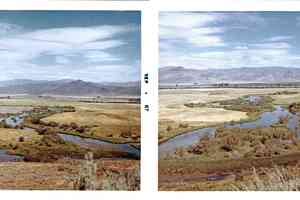


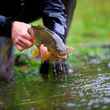
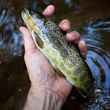
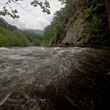

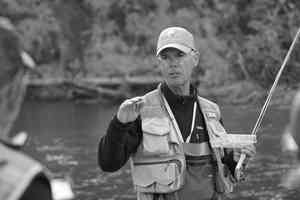
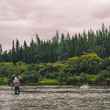

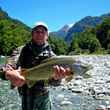

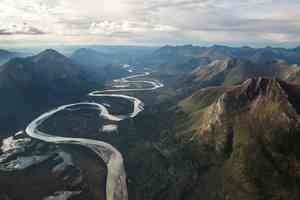

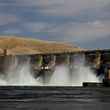
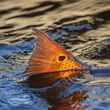
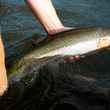
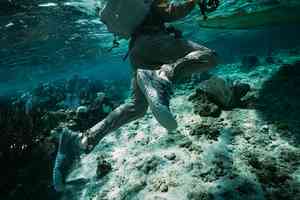
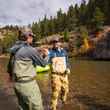

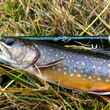

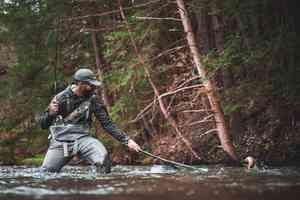

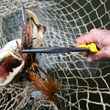
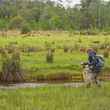
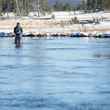

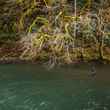

Comments
Mark Cooper replied on Permalink
Sad that Chris takes a tarpon tournament article and turns it into a climate article...cumulative effect of an ongoing climate crisis....really wow. What happen to who why where when how and witness who back it up journalism??
Layne Gardner replied on Permalink
Another good article, Chris. Even though I don’t fish for tarpon (yet), I definitely understand the importance of conservation.
On another note, I thought that you should know that the carp are spawning, cruising, and tailing at our favorite spring site below the dam.
Thanks again for heading me in the right direction. Carp are fun to target with a fly rod.
Gary Power replied on Permalink
I had the opportunity to fish for tarpon out of Flamingo and the gulf this spring. The weather and water temps didn't co-operate but the guide was excellent and was well versed in the fishery, and wildlife. I have bone fished in the Bahamas and tarpon and bones in Belize and all have been excellent adventures. I am a Board member for a local chapter of TU in Idaho, retired from the Idaho Fish and game, then appointed by the Governor to serve on the Idaho Fish and Game for 8 years. I am a licensed fishing and white water guide on wilderness rivers in Idaho.
I support the actions of the guides who have resisted the tarpon tournaments in Florida. I have seen the effects on both fish and wildlife due to media attention, whether in print, television or the internet. Additional pressure on any species due to media attention, tends to reduce the survival of species we highlight. Add large prizes and cash, and the goal is to win, regardless of the impact to the species.
We are in a fight to recover Salmon and Steelhead in the upper reaches of the Salmon river in Idaho, where 4 dams on the Lower Snake river in Washington prevent the smolts (out going) to adults (returning to spawn), to meet the minimum federal standards for recovery. Smolt to adult returns do meet the Federal standards below the 4 dams.
Pages